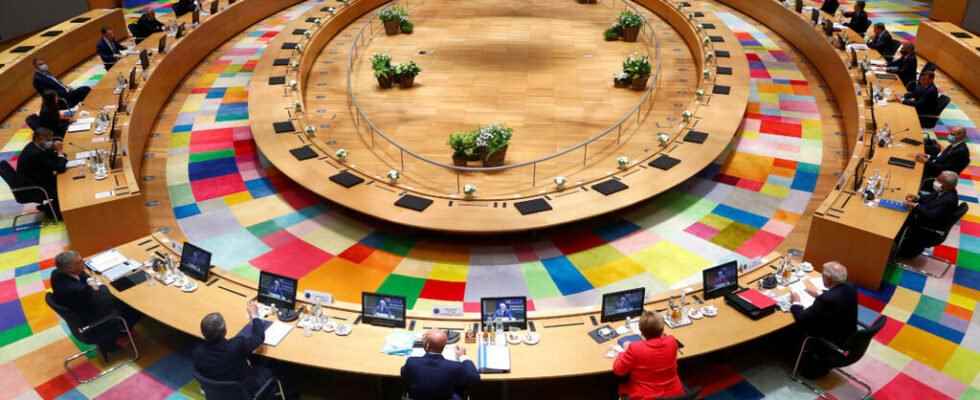This January 1, 2022, France takes over the reins of the Council of the European Union for six months, thirteen years after its first experience. Paris succeeds Slovenia and will try to find compromises on texts and solve political problems between the governments of the 27 states. But how is European policy constructed? Which bodies are competent to take decisions?
The European Council
Currently chaired by Belgian Charles Michel, the European Council is the EU body that brings together the heads of state and government of the member states. It defines the main orientations of the European Union and indicates the position of the States at the highest level.
► See also: Hungary and Russia shake up the European Council
The projects of the European Council are translated by the European Commission into legislative proposals, then amended and voted on by the European Parliament and the Council of the European Union. It sits in Brussels.
Before the Lisbon Treaty of 2007, the Council was chaired by the country’s Head of State at the head of the Council of the European Union, this was the case in 2008 with Nicolas Sarkozy who therefore held both functions for France.
The European Commission
This body, currently chaired by the German Ursula von der Leyen, submits bills (directives and regulations) and decides on the subjects which must be dealt with by the Member States and MEPs. It also sees to the application of the treaties, and can refer the matter to the Court of Justice of the European Union in the event of failure of one of the States. It has 27 commissioners, one per Member State. The latter do not represent their State of origin. They are independent and act in favor of the general interest of the European Union.
The Commission sits in Brussels.
The European Parliament
The European Parliament represents the people of the Member States. MEPs (705) are elected by direct universal suffrage every 5 years during European elections. They sit in plenary session in Strasbourg, but in practice, Parliament’s activity is concentrated in Brussels. It is he who elects the President of the European Commission and approves the 27 members of the European Commission. It also adopts the budget of the European Union. Its main mission: the examination of the texts proposed by the European Commission. They then submit their position to the Council.
It is currently the Italian David Maria Sassoli who is at the head of the European Parliament
The Council of the European Union (not to be confused with the European Council)
If the Council approves all the MEPs’ amendments, the act can be adopted. But if the Council adopts another position, Parliament has three months to react at a second reading and decides either to accept the Council’s position, or to amend it again or to reject it. and the proposal is not adopted. As a result, the Council has the capacity to speed up or slow down the examination of a legislative text.
It is in this legislative work that France will join the head of the Council of the European Union from January 1, 2022. Ten thematic formations make up the Council of the EU which brings together the ministers of each member state in depending on the subject. For example, Agriculture and Fisheries, Competitiveness, Justice and Home Affairs, or Education, Youth and Culture.
In some cases, the Council legislates alone. Parliament’s role is then limited to consultation, particularly in tax matters, or to approving or not approving a text without being able to modify it by means of amendments, for example for the conclusion of international agreements.
The Council acts by qualified majority in most cases and meets in Brussels or Luxembourg.
The French presidency of the European Union in 2022 will face several difficulties. It will be concomitant with a presidential election in France, but also with an end of presidency within the European Council since Charles Michel ends his mandate in May. It will also have to deal with unforeseen events, as was the case in 2008 for Nicolas Sarkozy with the Georgian crisis. For the first time, the European Union has succeeded, according to experts, in international mediation between Moscow and Tbilisi, allowing the fighting to stop.
The Court of Justice of the European Union (CJEU)
Assisted by all the courts of the Member States, the CJEU ensures the application of European law.
► To read also: The primacy of European law, what is it?
In the event of a breach, an appeal may be initiated by the European Commission or another Member State. The country in question must immediately end it, failing which it may face a second appeal and pay a fine.
The CJEU can also be referred to the Council of the EU, the European Commission or, in some cases, the European Parliament if a European legislative act violates EU treaties or violates fundamental rights. An individual can also ask the Court to annul an act which concerns him directly.
► See also: The Court of Justice of the EU sentences Poland to a daily fine of one million euros
Our selection of archives on the subject
